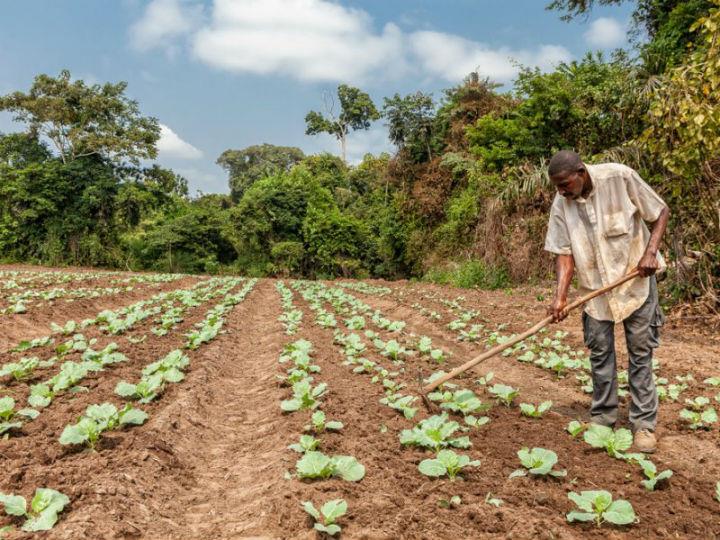by Natasha Foote
In the wake of the coronavirus pandemic, the need for EU-African collaboration is more important than ever in the drive to strengthen and transform food systems, but care must be taken to make it an equitable partnership, experts have stressed.
Speaking during a recent event on the potential role of a sustainable Europe-Africa research and innovation (R&I) platform in addressing food systems resilience, Lindiwe Sibanda, head of mission of the food, agriculture and natural resources policy analysis network (FANRPAN), stressed that Africa and Europe are both “facing unprecedented challenges with COVID-19, which has negatively affected our food systems for which our collaborative role is very much needed”.
Overcoming these challenges, as well as those which await the food sector in the future, cannot be done alone, she stressed, highlighting the need to foster global partnerships to support the transformation of the agricultural sector.
“Together working with Europe, our closest neighbour in research and innovation, we will be able to jointly address all the bottlenecks and issues of food insecurity and improve the nutrition in our continent,” said Adipala Ekwamu, executive secretary of the regional universities forum for capacity building in agriculture (RUFORUM), who added a plea for support from the African Union Commission and the European Commission to move on this matter to make it a reality.
These sentiments were shared by Hans-Jorg Lutzeyer, senior policy officer at the Commission’s DG Research and Innovation, who highlighted the importance of the EU-AU Research & Innovation (R&I) partnership on Food and Nutrition Security and Sustainable Agriculture (FNSSA), the 10 year roadmap and the envisaged platform for long-term collaboration.
This platform is designed to bring stakeholder groups together who will contribute to more resilient food systems through R&I.
The event comes on the back of the advent of the first-ever EU-AU research and innovation ministers’ meeting earlier this year, hosted by EU Innovation Commissioner Mariya Gabriel, and Sarah Agbor, the AU Commissioner for Human Resources, Science and Technology.
Lutzeyer also underlined that EU funding will focus on further investment through Horizon Europe, for example on plant health, agroecology and malnutrition, emphasising the need to strengthen innovations in African food systems by sharing research in both continents.
“I think we should also use opportunities if we build networks of European universities to link them up,” he said, adding that this is expected to be on the agenda for years to come.
However, Philippe Petithuguenin, research and strategy deputy director of Leap 4 FNSSA, the long-term EU-AU research and innovation partnership, stressed that this partnership goes both ways, highlighting that there is an added value for Europe and Africa to work together on those issues.
“We learn from each other, and each continent learns from the other continent,” he said.
Stressing that this is not an aid programme, Petithuguenin highlighted that while challenges and circumstances might be different, the two parties must be aligned in a common goal.
“For this platform to be efficient and a partnership, which is not an aid program, we have to have an alignment of visions and work together. But key to this is going to be both continents need to be on board and all stakeholders on board,” he said.
In particular, voices of small farmers, consumers and civil society organisations (CSO) must be at the table, he emphasised.
His comments come on the back of criticism that CSOs are being shut out of discussions between the EU-AU, who warn that the process must not be just a top-down exercise between political elites.
*first published in: www.euractiv.com




 By: N. Peter Kramer
By: N. Peter Kramer
